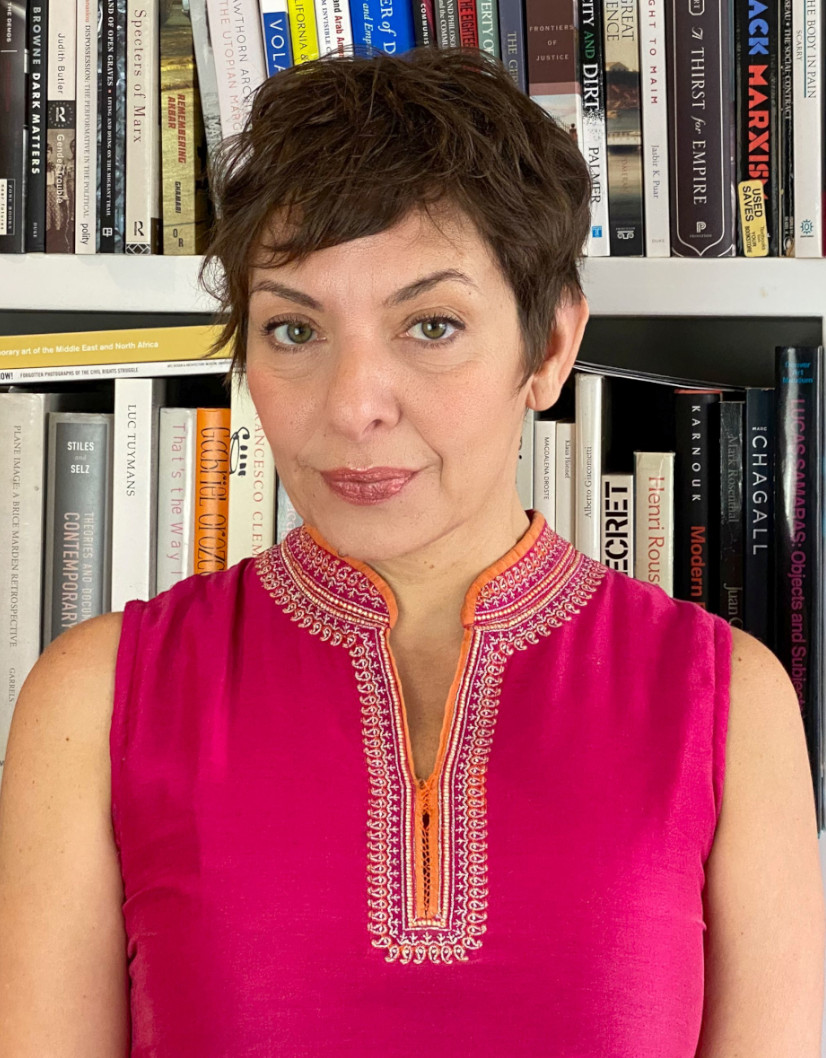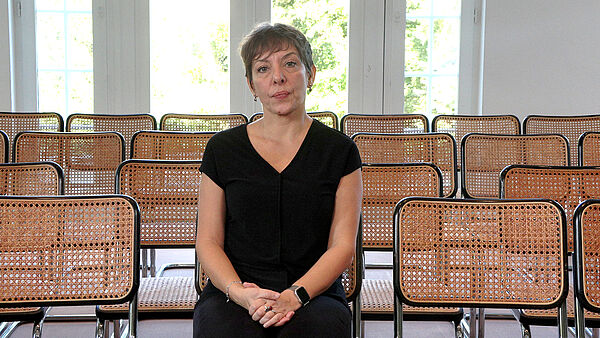
Sherene Seikaly, Ph.D.
Associate Professor of History
University of California at Santa Barbara
Born in 1971 in Beirut
M.A. in Arab Studies from Georgetown University, Ph.D. in Joint History/Middle Eastern Studies from New York University
Project
From Baltimore to Beirut: On the Question of Palestine
How do we understand conflicting claims to land and land’s relationship to colonialism? This is the question of Palestine. At its best, this question can offer new ways to think about land and history. Yet, histories and historiographies of Palestine remain limited to the territorial and conceptual borders of the nation-state. My book project, From Baltimore to Beirut: On the Question of Palestine, charts an escape from nationalist confines. The central figure of my narrative is a Palestinian man who was at once a colonial officer and a colonized subject, an enslaver and a refugee. I explore how his trajectory from nineteenth-century mobility across Baltimore and Sudan to twentieth-century immobility in Lebanon places the question of Palestine in a global history of race, capital, slavery, and dispossession.Naim Cotran (c. 1877–1961) was born in the northern coastal city of Acre, Palestine, at that time under Ottoman rule. He began his education at the Syrian Protestant College in Beirut. In 1899, he traveled to Baltimore to continue his medical training at the University of Maryland. Naim returned to Palestine to become one of Acre’s first registered medical doctors. During World War I, he served as a medical official in Omdurman, Sudan with the Anglo-Egyptian Army. On his return to Palestine, then under British rule (1918–1948), his in-laws gifted Naim and his young wife Aniseh an enslaved woman named Sa‘da. Naim and Aniseh manumitted Sa‘da, but she lived and died with them as their domestic servant. Eight miles northeast of Acre, in a village called Nahr al-Nabi‘a, Naim owned about twenty hectares of land. During the war of 1948, his children and grandchildren took refuge in Lebanon and Egypt. Naim and Aniseh stayed on the land, in an attempt to hold on to Palestine’s shrinking remains. They lost that battle in 1951 and became refugees who lived the last years of their lives in Lebanon.
That doctor, Naim, was my great-grandfather. By sheer coincidence, I encountered Naim in ways that inspired new questions about history and the lived present. From Baltimore to Beirut is a sustained reflection on the meanings of archives, the writing of history, and the power of autobiography.
Recommended Reading
Seikaly, Sherene. “In the Shadow of War: The Journal of Palestine Studies as Archive.” Journal of Palestine Studies 51, no. 2 (Fall 2022): 5–26.
Seikaly, Sherene, and Sara Scalenghe. “The Body and Revolution in the Middle East.” In The Routledge Handbook on Women in the Middle East, edited by Suad Joseph and Zeina Zaatari, 135–146. London: Routledge, 2022.
Seikaly, Sherene. “Reading in Time.” World Humanities Report, Consortium of Humanities Centers and Institutes (CHCI), 2023. https://worldhumanitiesreport.org/wp-content/uploads/2023/05/WHR-AR_6.UrgencyTemporality_Seikaly.pdf.
Colloquium, 25.03.2025
The Matter of Time: Race, Catastrophe, and Palestine
In this talk, I follow the ghostly guides of my great grandparents from Acre to Baltimore, from Omdurman to Beirut to shed light on race, catastrophe, and Palestine. Naim Cotran (1877-1961) started his education at the Syrian Protestant College in Beirut. In 1899, he traveled to Baltimore to continue his medical training at the University of Maryland. Naim returned to Palestine to become one of Acre’s first registered medical doctors. In 1910, he married Aniseh Seikaly (1896–1978). Aniseh’s parents gifted the couple an enslaved woman named Sa‘da. Naim and Aniseh manumitted Sa‘da; she lived and died with them as their domestic servant. After their marriage, Aniseh, Naim, and Sa‘da moved to Omdurman, Sudan where Naim served as a medical official in the Anglo-Egyptian government, mediating between the “natives” and the colonial officials. On their return to Palestine in 1919, they were the “natives,” stripped of political rights. Eight miles northeast of Acre, in a village called Nahr al-Nabi‘a, the couple owned twenty hectares of land. During the war of 1948, the couple mobilized bureaucracy to hold on to Palestine’s shrinking remains. They lost that battle in 1951, became refugees, and lived the last years of their lives in Lebanon. Their global Palestinian journey offers lessons on temporality, dispossession, and catastrophe.
Publications from the Fellow Library
Seikaly, Sherene (S.l., 2023)
Seikaly, Sherene (London, 2022)
In the shadow of war : the Journal of Palestine Studies as archive
Seikaly, Sherene (Stanford, California, 2021)
A critical political economy of the Middle East and North Africa Stanford studies in Middle Eastern and Islamic societies and cultures
Seikaly, Sherene (Oxford, 2019)
Seikaly, Sherene (Durham, NC, 2018)
How I met my great-grandfather : archives and the writing of history
